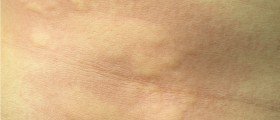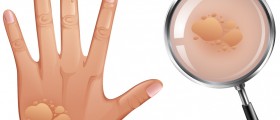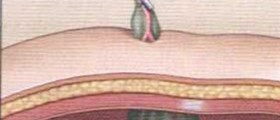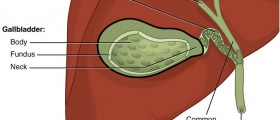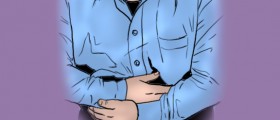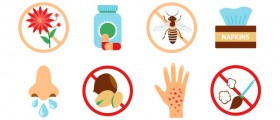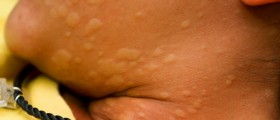Loading...
I had gall bladder surgery Nov. 2009 and chronic hives (Oct 2010 till present) followed. I recently had an upper endoscopy done (March 2011) and the doctor found GERD and inflamation in the stomach caused by pooling bile in the stomach. I am in process now of following up for getting rid of hives. I have also learned that I have a latex allergy as well as food sensitivity. I had food sensitivity blood work done through a program called LEAP ( Lifestyle Eating and Performance). I found I was sensitive to corn, coffee, cottage cheese and garlic. I am eliminating all foods, drugs and products containing these. Corn is in so many products and things that I did not even realize. I also have a sulfur allergy and had to find shampoos, soaps, etc without sulfites and sulfates. It has been a process but the learning about latex allergy and all the foods that have to be elimanted because of it in addition to food sensitivities has completely changed my way of living. Now I look at every product that goes on or in my body. My suggestion based upon my experience is to find a good gastroenterologist doctor and a nutritionist who participates with LEAP program and begin working on getting healthy. Water is a cleansing for inflamation as well so I drink 1/2 my body weight is ounces daily. Best wishes to finding your path to being completly well. Marfar
Loading...
Loading...
Loading...
Loading...
Loading...
Loading...
Loading...
Loading...
Loading...
Loading...
Chronic hives (urticaria) can have various causes. While it's possible that the development of chronic hives after gallbladder surgery could be coincidental, it's also worth exploring potential connections or triggers. Some possible factors that may contribute to the development of hives after surgery include:
(1) Medications: Certain medications, including those prescribed after surgery, can sometimes cause allergic reactions or trigger hives as a side effect. It's important to review your medication history with your healthcare provider to identify any potential culprits.
(2) Stress or trauma: Surgery itself can be a physical and emotional stressor, which may potentially trigger or exacerbate hives in susceptible individuals. Stress management techniques and seeking emotional support can be beneficial in managing symptoms.
(3) Immune system response: Surgery can affect the immune system, and in some cases, the immune response may manifest as hives. Understanding the underlying immune system dynamics can be helpful in determining appropriate treatment strategies.
To address your specific situation and explore potential connections between your gallbladder surgery and the development of chronic hives, I recommend consulting with a dermatologist or an allergist/immunologist. They can conduct a thorough evaluation, review your medical history, and perform any necessary tests to identify the underlying cause and provide appropriate treatment options.
In the meantime, you may find some relief from chronic hives by:
Avoiding known triggers, such as certain foods, medications, or environmental factors.
Using over-the-counter antihistamines or other prescribed medications to help alleviate symptoms.
Practicing stress management techniques, such as relaxation exercises or mindfulness, to help reduce stress levels.
Loading...
Loading...
Loading...




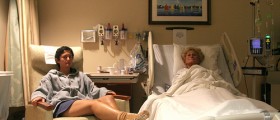
-Causes,-Symptoms-And-Diagnosis_f_280x120.jpg)

